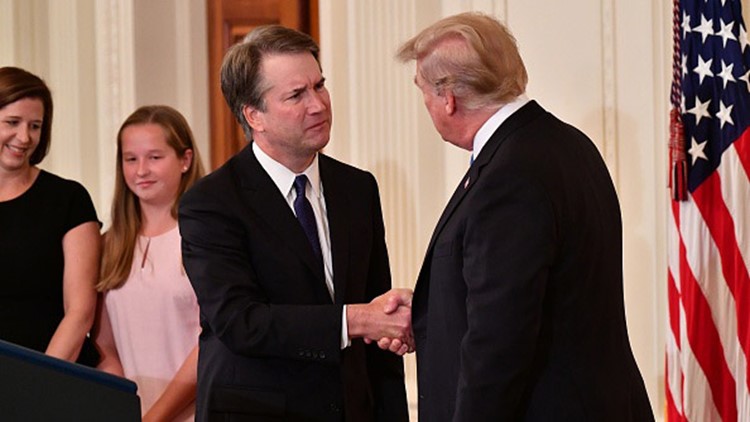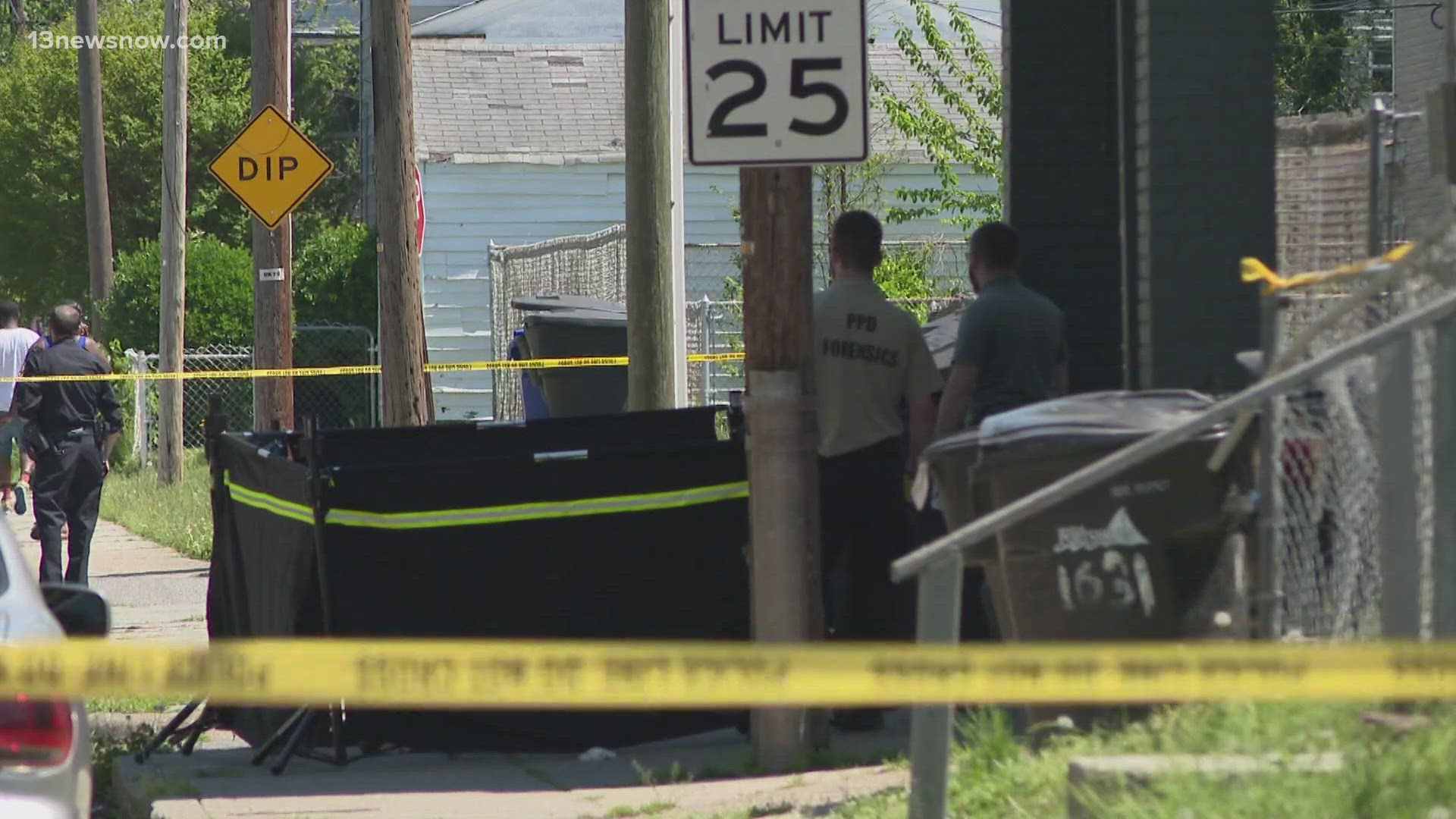On paper, Brett Michael Kavanaugh may be the most qualified Supreme Court nominee in generations.
Like Chief Justice John Roberts and Justices Ruth Bader Ginsburg and Clarence Thomas, he has served on the second-most powerful court in the nation. Like Justices Anthony Kennedy, Stephen Breyer, Samuel Alito, Sonia Sotomayor and Neil Gorsuch, he brings more than a decade's experience as a federal appeals court judge. And like Justice Elena Kagan, he has worked at the side of a two-term president.
But Kavanaugh's 12 years on the U.S. Court of Appeals for the District of Columbia Circuit, combined with his Yale pedigree, Supreme Court clerkship under retiring Associate Justice Anthony Kennedy and top posts under President George W. Bush, give him a résumé the court's current justices can't match.
It may be in his blood: Even his mother, Martha, became a Maryland state judge a quarter-century ago.
"I have interviewed many candidates for the federal bench, including Roberts and Alito," said Bush's former attorney general, Alberto Gonzales. "There is no question in my mind regarding Brett for the Supreme Court. He has a track record that demonstrates his talents and his judicial philosophy."
More than anyone else in conservative legal circles today, Kavanaugh, 53, has been viewed as a Supreme Court justice-in-waiting. While waiting, he has written some 300 opinions and sent 41 of his law clerks to similar posts at the high court — far more than any of his competitors for the nomination.
But Kavanaugh's status as front-runner for the prestigious high court seat came with a fair amount of baggage that nearly cost him the nod.
Washington insider
When President Donald Trump put together his first and second lists of potential nominees last year, Kavanaugh's name was missing. The reason? He was a product of Washington, D.C., from the day he was born, and the renegade president wanted an outsider.
When independent counsel Kenneth Starr was heading the investigation into President Bill Clinton, he hired Kavanaugh as an assistant. In that post, Kavanaugh argued that Clinton's lies about his affair with Monica Lewinsky could be grounds for impeachment. But a decade later, he wrote that presidents should not be subject to "time-consuming and distracting" civil lawsuits or criminal investigations while in office.
“He was known as pretty much the brightest guy that we had,” said Robert Bittman, who worked with Kavanaugh on the Clinton investigation. "He was uber-confident in terms of his judgment, his ability, his work ethic."
When Bush's 2000 election hinged on a recount in Florida, Kavanaugh was part of the would-be president's legal team. That work led him to the White House, where he eventually served as Bush's staff secretary while his wife, Ashley Estes, served as the president's personal secretary.
All that involvement in politics led Senate Democrats to block his nomination to the prestigious federal appeals court in 2003. Sen. Dick Durbin called him the "Forrest Gump of Republican politics." Sen. Charles Schumer, now the Senate Democratic leader, said, “If there was a political fight that needed a political foot soldier in the last decade, Brett Kavanaugh was probably there.”
Ultimately, Kavanaugh made it on to the court that has been a stepping-stone for many Supreme Court justices by a 57-36 vote in 2006. At his final Judiciary Committee hearing, he credited Kennedy for helping to teach him "the essential neutrality of the law."
“I will interpret the law as written and not impose personal policy preferences," he pledged. "I’ll exercise judicial power prudently and with restraint. I’ll follow precedent in all cases fully and fairly. And above all, I will at all times maintain the absolute independence of the judiciary.”
Controversial cases
Throughout the search for Trump's second Supreme Court nominee, Kavanaugh was a favorite of the conservative legal cognoscenti. They sought someone with a long track record that included most of the controversial issues likely to come before the high court.
"Brett Kavanaugh is among the most distinguished and respected judges in the country, with over 300 opinions that clearly demonstrate fairness and a commitment to interpreting the Constitution as it’s written and enforcing the limits on government power contained in the Constitution," said Leonard Leo, who is advising the White House on the Supreme Court nomination while on leave as executive vice president of the Federalist Society.
Kavanaugh's 12 years on the D.C. Circuit – longer than any recent Supreme Court nominee but Ginsburg, who served there 13 years – have included some controversial cases. Among them:
- In 2011, he dissented from an appeals court decision upholding the Affordable Care Act's individual mandate. But rather than declare it unconstitutional, he wrote a 65-page dissent arguing that judges had no authority to decide the case. "We’re courts of judicial restraint," he said during oral argument. "It’s a delicate act to declare an act of Congress unconstitutional.” That has caused some conservatives to liken him to Roberts, who saved Obamacare from extinction in a 5-4 ruling the following year.
- During a hearing in 2016 on Obama's "clean power" plan to combat global warming, he called the policy "laudable" but said it set unachievable limits that would drive plants out of business. "Lots of people are going to lose their jobs, lose their livelihoods," he said. The plan never took effect.
- Last year, he dissented from the appeals court's ruling in favor of an undocumented teenage girl seeking an abortion. He cited Supreme Court precedents, under which he said that "the government has permissible interests in favoring fetal life, protecting the best interests of a minor, and refraining from facilitating abortion." But he did not sign on to another dissent that argued illegal immigrants have no right to abortion.
- Earlier this year, he dissented from a decision upholding the structure of the Consumer Financial Protection Bureau, created during the Obama administration to enforce regulations against banks, lenders and other business groups. He called independent agencies such as the CFPB "a headless fourth branch of the U.S. government.
"What we have with Judge Kavanaugh is a very lengthy track record of someone who has established his conservative bona fides," said Howard Bashman, an appellate lawyer in Pennsylvania who clerked with Kavanaugh at the U.S. Court of Appeals for the Third Circuit. "He also deserves credit for approaching every case with an open mind and trying to come up with an outcome that makes sense when it’s explained.”
That "open mind" was cited by others who have worked with Kavanaugh as clerks or colleagues.
"He's a very independent, fair-minded judge," said Jennifer Mascott, an assistant professor at George Mason University's Antonin Scalia Law School, who clerked for Kavanaugh his first year on the bench. She recalled him slaving over "scores" of drafts of his opinions, "making sure every single last word was phrased in the way he thought was best.”
'Bud Light kind of guy'
All of which is to say that Kavanaugh has been both a political foot soldier and a leading legal theorist in conservative circles for most of his adult life.
It's "a pretty perfect résumé," said Richard Re, assistant professor of law at UCLA School of Law, who clerked for Kavanaugh on the federal appeals court. He describes his former boss as "intellectually voracious" and a "cutting-edge textualist thinker" – but also "a Bud Light kind of guy."
Nearly everyone interviewed ahead of Kavanaugh's nomination also described him as a sports junkie who lives and dies with the up-and-down Washington Nationals.
“He has been fortunate to have various experiences in his past like most of us regular mortals will never have," Bashman, who attends Nats games with Kavanaugh, said. "But he knows what it is to be a regular person.”
Scott McCaleb has been a friend since he and Kavanaugh attended rival Jesuit high schools in 1980. (Kavanaugh was two years ahead of Gorsuch at Georgetown Preparatory School.) McCaleb said the service-oriented education they received has defined the judge's life. He has mentored underprivileged children, served meals to the homeless and coached his daughters' Catholic Youth Organization basketball teams.
“He really lives the Jesuit mantra of being a man for others," McCaleb said. "He does it in so many ways.”
In his recent commencement address at Catholic University of America's Columbus School of Law, Kavanaugh urged graduates to do the same.
"Being a graduate of this law school means you will have many advantages, but you also have responsibilities: serve meals to the homeless, give clothing to the poor, and use your legal training to help those who need legal help," he said. "As Pope Francis says, ‘Faith and values mean not just belief and going to Mass, but action.'"
The Brett Kavanaugh File
Age: 53
Born: Washington, D.C.
Education: Bachelor’s degree from Yale University, 1987; law degree from Yale Law School, 1990
Religion: Roman Catholic
Family: Wife, Ashley; two daughters
Home: Chevy Chase, Maryland
Current position: Judge on the U.S. Court of Appeals for the District of Columbia Circuit since 2006
Career experience: Assistant to the president and staff secretary, White House, 2003-06; senior associate counsel and associate counsel, White House, 2001-03; partner, Kirkland & Ellis, 1997-98, 1999-2001; associate counsel, Office of Independent Counsel, 1994-97, 1998; law clerk for Associate Justice Anthony Kennedy, 1993-94; attorney, Office of the Solicitor General, Department of Justice, 1992-93.



